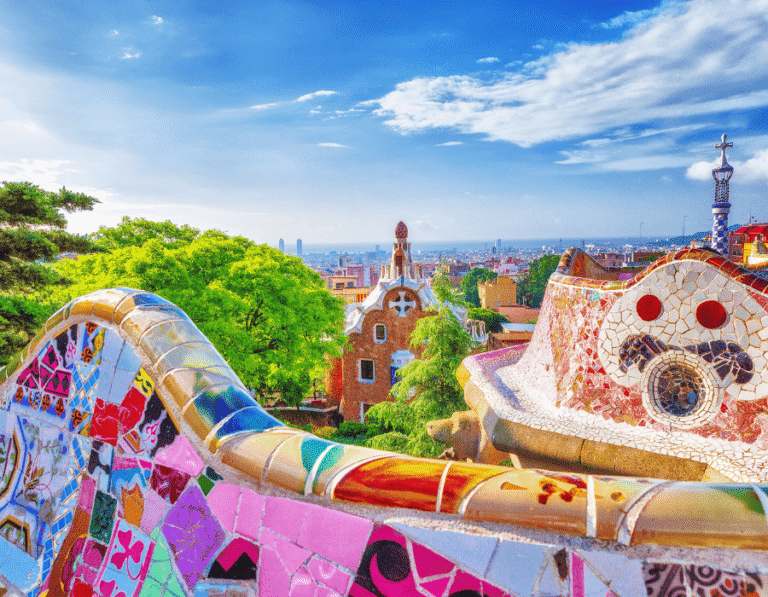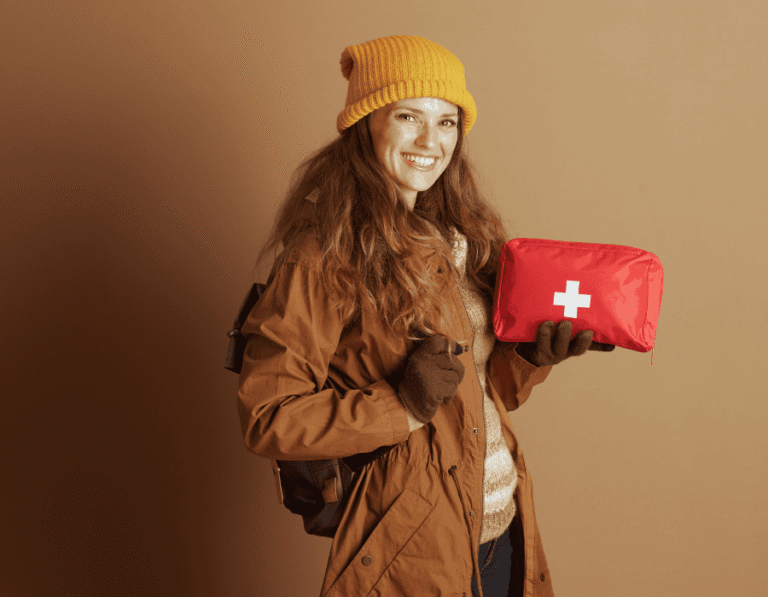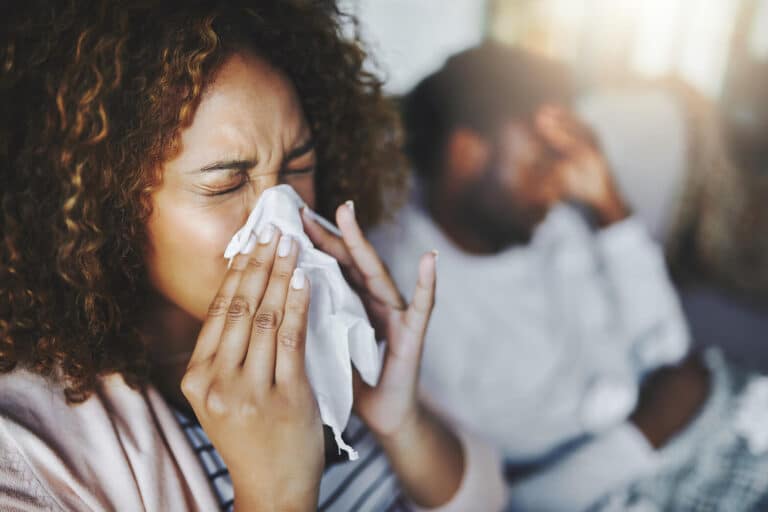France is one of those destinations that tends to land up on nearly every bucket list.
Situated in Western Europe, the country encompasses Mediterranean beaches, alpine villages, and medieval cities. Paris is its capital, world-renowned for fashion, classical art, and monuments like the Eiffel Tower. And of course, France is also famed for its wine and sophisticated cuisine – ooh la la!
If you are planning a trip to France, then this healthcare guide will tell you everything you need to know to stay safe and informed during your stay.
Contents
- Healthcare Basics
- Cost of Healthcare in France
- Seeing a Specialist
- Drugstores and Pharmacies
- Hospitals and Clinics in France
- Emergency and After-Hours Healthcare
- Tips for Tourists
Healthcare In France – The Basics
Considered one of the best in the world, the French healthcare system boasts more than one doctor for every 1,000 citizens and an average life expectancy of 83 years. It’s a hybrid universal healthcare system that provides coverage for all citizens in France through an integrated network of public and private services, including doctors, hospitals, and specialist providers.
Healthcare costs are partly covered by the state and partly by individual or private health insurance companies. Residents are covered through mandatory health insurance contributions or taxes, with private insurance options widely available for additional coverage. Government-funded agencies cover over 75% of health expenditures in the country.
Tourists and foreigners visiting France must have a minimum of 30,000 EUR in travel medical insurance, which should cover urgent healthcare, emergency hospital treatment, repatriation for medical reasons, and death. This is a primary visa requirement and insurance should provide coverage across France and all member states of the Schengen area.
Public Healthcare
The Ministry of Social Affairs and Health regulates public healthcare in France, with various healthcare providers delivering primary and secondary care services. All residents have access to public healthcare, and a new healthcare system for foreigners, called Protection Universelle Maladie (PUMA), allows them to access state healthcare after three months of residence in France.
All residents are required by law to have some form of health insurance, either state or private, and certain households may be eligible for free commentary health insurance coverage (CMU-C) if their income falls below a certain threshold. Temporary visitors from the EU/EEA/Switzerland can access public healthcare with a European Health Insurance Card (EHIC).
Private Healthcare
Many private doctors and specialists receive funding through the state insurance scheme and provide services through the public healthcare system. Similarly, people with public insurance can access most private hospitals, but the fees will be higher. Therefore, many French residents and expats have additional private health insurance to cover the balance.
Foreigners need private health insurance for their first three months in France if they are not covered by the EHIC or some other form of insurance.
Cost of Health Care In France
The French healthcare system is funded by compulsory social security contributions deducted from salaries and the government, with patients also contributing a small amount. The state health insurance covers 70-100% of costs for doctor visits and hospital stays, and those who are long-term sick or low-income can receive 100% coverage.
Doctors and medical professionals are paid directly by the government or health insurer as of 2017, and upfront payments are not allowed.
France has one of the most expensive healthcare systems globally and spends around 11.5% of GDP on it. Patients typically pay a flat rate of around €25 for a GP visit, with higher rates for after-hours and at-home visits.
Doctors And Specialists In France
In France, family doctors or GPs are referred to as médecins généralistes. Individuals have the freedom to choose their preferred doctor, but they should register them as their primary or attending physician (médecin traitant) to receive complete reimbursement via the French healthcare system.
Similar to other healthcare systems, GPs can refer patients to other medical specialists, maintain medical records, and coordinate follow-up treatments. If referred by your GP or médecin traitant, roughly 70% of healthcare expenses, such as medical consultations and treatments, will be reimbursed. Opting to see a specialist of your choice may result in higher medical fees, as well as reduced reimbursement.
A referral isn’t required to consult with a gynecologist, ophthalmologist, or pediatrician. Moreover, if you are under 26 years old, you can consult with a psychiatrist without a referral from your GP.
Seeing A Specialist
Specialists charge more than GPs, but there are official agreed-upon rates with the national health service, forming the basis on which patients are reimbursed.
Nearly 30% of outpatient specialists are exclusively self-employed, either in offices or private clinics, and are paid on a fee-for-service basis; the rest are either fully salaried hospital employees or have a mix of income sources. Specialists operating in public hospitals may see private-paying patients either as outpatient or in-patient. Half of the specialists across the country are working out of private group practices, and this percentage is increasing among specialties that require significant investments in equipment and technology.
Drugstores And Pharmacies
There are over 20,000 pharmacies (Pharmacie) across France – which is double the number in the UK. Pharmacies are identifiable by a large green cross.
Upon presenting your prescription at a pharmacy, you need to pay a portion of the cost of the medicine – this varies based on the medication and insurance coverage. The amount reimbursed is contingent on the type of medication prescribed and may range from 15% to 100%.
Pharmacies in larger towns and shopping centers typically operate from Monday to Saturday, between 8:30 AM and 7:30 PM. But, in smaller towns, pharmacies often close for lunch between 12:00 PM and 2:00 PM. Typically, one pharmacy in the area remains open on Sundays and after-hours. You can easily locate the duty pharmacy by checking the window of other pharmacies, consulting the local newspaper, or calling 3237.
Hospitals In France
In France there are two kinds of hospitals:
- State-run hôpitaux
- Privately run cliniques
Although cliniques are usually state-approved and work under the country’s healthcare system, doctors can refer you to either a state hospital or a private clinic.
The French healthcare system reimburses around 80% of hospital costs, but not the costs of staying over overnight – and this is where top-up insurance is useful.
List of International Hospitals
Centre Hospitalier Universitaire de Toulouse
- Place Lange, 31300 Toulouse, France
- +33 5 61 77 78 16
Centre Hospitalier Universitaire de Lille
- 2 Avenue Oscar Lambret, 59000 Lille, France
- +33 3 20 44 59 62
Groupe Hospitalier Pellegrin
- Place Amélie Raba Léon, 33076 Bordeaux, France
- +33 5 56 79 56 79
Hôpital Civil, Strasbourg
- 1 Place de L Hôpital, 67000 Strasbourg, France
- +33 3 88 11 67 68
Centre Hospitalier Universitaire de Tours
- 2 boulevard Tonnellé, 37000 Tours, France
- +33 2 47 47 47 47
Centre Hospitalier Universitaire de Montpellier
- 2 avenue Emile Bertin Sans, 34000 Montpellier, France
- +33 4 67 33 74 85
Centre hospitalier universitaire de Nantes
- 1 Place Alexis-Ricordeau, 44000 Nantes, France
- +33 2 40 08 33 33
Hospital Center University Rouen
- 1 Rue de Germont, 76000 Rouen, France
- +33 2 32 88 89 90
Hospital Center University De Rennes
- 2 Rue Henri le Guilloux, 35000 Rennes, France
- +33 2 99 28 43 21
Pitié-Salpêtrière Hospital
- 47-83 Boulevard de l’Hôpital, 75013 Paris, France
- +33 1 42 16 00 00
Health Centers & Clinics In France
In France, numerous healthcare professionals such as doctors and dentists operate in health centers known as “centres de sante” throughout the country. These centers, which number approximately 1,600 in total, are mostly located in urban areas. When you see a specialist, they are likely to work at a “centres de sante.” To locate a center close to you, you can visit the National Federation of Health Centers (Federation Nationale des Centres de Sante) website.
Additionally, there are Family Planning Centers (centres de planification et d’education familial) that offer services such as birth control, parenting sessions, sexual health advice, and abortions. To learn more about the services offered in your region and to find a center nearby, you can visit the Planning Familial website.
Emergency And After-Hours Healthcare
In a medical emergency, head to the nearest hospital A&E or ER (les urgences). Additionally, call 112 (or 114 for hearing assistance), which is the free pan-European emergency number for any type of emergency. The following numbers are also free to dial:
- 15 – SAMU (Service d’Aide Médicale d’Urgence) for serious medical emergencies that require an ambulance and specialist medical teams
- 18 – sapeurs pompiers are the fire brigade, who respond to car accidents and emergency medical situations
- 17 – police (commissariat de police or gendarmerie)
- 112 – sea and lake emergencies (calling from land)
- 116 117 – after-hours doctor
Tips For Tourists In France
Many French people speak English well, especially in larger cities. Overall, French people dislike being addressed in English by foreigners unless first asking if they speak English: Parlez-vous anglais?
It is polite to say ‘bonjour’ or ‘bonsoir’ (good morning or good evening) when encountering someone, even if it’s a stranger. It’s customary to greet people with a brief bonjour.
French traditions and culture reflect their values of unity, beauty, respect, and family. Hierarchy is strictly adhered to in France. Decisions are made by those at the upper levels of authority, subordinates must only act when specifically instructed to do so.
Quiet tones are expected in public, and it is considered polite to be formal and reserved, particularly with strangers or acquaintances.
When arriving at a doctor’s room, let the receptionist know you’re there – if there is no reception, go to the waiting room. Normally the door will be marked. Greet everyone with a quick bonjour and then sit down. Do not just go sit down.
French GPs don’t always wear white doctors’ coats and instead wear regular clothes. Do not ask if they are the doctor, it would be considered rude.
Customer service is not part of French medical standards, while the medical providers are polite and professional, they won’t necessarily go out of their way to establish a relationship. The French believe the patient is there for medical attention, so healthcare providers directly attend to the medical need at hand.
Some Useful Phrases:
Some useful phrases to learn, in case of an emergency, are:
- Besoin une ambulance: I need an ambulance
- J’ai eu un accident: I’ve had an accident
- Ma localité est…: My location is…
- Crise cardiaque: Heart attack
- Très malade: Very ill
- Je suis en train d’accoucher: I’m in labour
- Où est-ce qu’on peut trouver un cabinet médical? Where can I find a doctor’s surgery?
- Au secours: Help!
If you are a tourist in France and would like to speak to a medical professional connected to an international network of doctors, you can make an appointment on the Air Doctor web app right now and have an in-person or virtual consultation within minutes. You can also download the Air Doctor app on your Android or iOS device.












